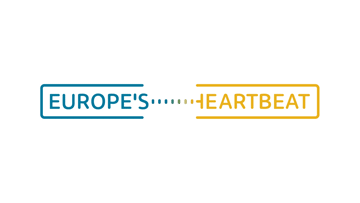Construction Laws
The responsibility for public construction law in Germany is divided between federal and state governments.
Zoning law (Bauplanungsrecht) is federal law. It determines the purpose for which a property may be used and whether a building project fits into its surroundings.
The federal states are responsible for building regulations law (Bauordnungsrecht), which determines how buildings may be designed and constructed in order to meet planning law requirements. Each state issues its own building regulation. However, most of the states have adopted a specimen building regulation issued by the state ministries which also makes provision for certain standardization within this field.
Building Permits
A building permit (Baugenehmigung) is required for the is required for the construction or alteration of a building with the exception of some changes of use or deconstruction. The building permit is granted if the project complies with the planning and building regulation law as well as with all other applicable laws (such as environmental laws).
An application for a building permit must be submitted to the local building authority or the building supervisory authority (Untere Bauaufsichtsbehörde).
The application must include a detailed plan of the project, accompanied by necessary supporting documentation such as site plan, construction drawings, building specifications, and, where applicable, documentation regarding heating, noise prevention, and fire protection plans.
Procedural merger
German law recognizes the principle of procedural merger. In order to simplify and coordinate the permit procedure, the immission control permit application procedure also includes the building permit process. Repeat procedures are therefore avoided and there is only one contact partner for the applicant.
Immission Control Permits
Environmental protection is declared as a general state goal in the German constitution (Grundgesetz). In general, all buildings may not contravene these protection goals. There are a number of different laws and regulations protecting the environment. Most important for large industrial facilities is the immission control permit, which is required prior to construction in order to prove that facilities and projects comply with the requirements of environmental law and other regulations aimed at protecting the common good.
Facilities and projects which are subject to the federal immission control act are determained in the 4th federal immission control ordinance (4. Bundesimmissionsschutzverordnung, 4. BImSchV) such as emmitting industrial plants, airports or highways.
Immission Control Permit Procedure
-
The approval procedure is governed by the Federal Immission Control Act (Bundes immissionsschutzgesetz, BImSchG) and related ordinances. The environmental agency of the respective federal state (Landesumweltamt) is responsible for the immission control permit procedure. The approving authority is the respective district government.
-
The BImSchG aims at protecting population and environment from detrimental effects due to air pollution, noise, vibration, light, radiation, and similar immissions. Construction, modification, and operation of emitting facilities require a formal approval procedure.
-
The permission procedure is limited to seven months, after which time a decision needs to be made: starting from the submission of the completed application documents. The approval procedure can be shortened for facilities or projects which, though still capable of generating detrimental effects, are expected to result in a less harmful or negligible impact on the population or environment.
-
Facilities likely to be subject to the simplified approval procedure may include facilities for the storage of inflammable gases or mineral oils and small paint or varnish shops. The time limit for the decision is three months starting from the submission of the completed application documents.
-
Some facilities are permit exempt under the terms of the BImSchG. Although construction, modification, and operation of such facilities are possible without direct authorization, the operator of the facility must nevertheless prevent detrimental effects to the environment and population.


